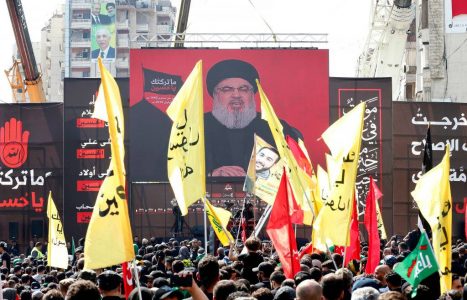
How Iranian fuel is igniting U.S.-Lebanese tensions
Washington reportedly refuses to allow Lebanon to accept Iranian fuel and one person may have predicted this
Pro-Hezbollah newspaper Al-Akhbar reported on Wednesday that U.S. President Joe Biden’s administration informed Lebanese caretaker Prime Minister Najib Mikati of “Washington’s refusal to allow Lebanon to accept the gift of Iranian fuel, at the risk of being subject to U.S. sanctions.”
Iran’s “gift of fuel” – an offer to provide Lebanon with over 660,000 tons of gasoline – was announced in September as an attempt to ease power shortages in the Mediterranean country. Naturally, deepening Lebanon’s dependence on the Islamic Republic is always a plus for the Ayatollah regime.
If the deal ends up happening, it would be the first time that Iran supplies fuel directly to the Lebanese state. Last year, the country sent some through its proxy, the Lebanese militant and political movement Hezbollah. But back then, it was over 36,000 metric tons of gasoline, roughly five percent of what Tehran is offering now.
Yet the Biden administration, at least according to Al-Akhbar, may have pulled a fast one on Lebanon regarding its position on the Iranian fuel donation.
When Lebanese officials contacted Washington in July regarding Iran’s offer, they received a surprising response. The U.S. officials allegedly responded, “Sure, no problem. Our sanctions don’t apply to donations,” according to Al-Akhbar.
This was as Lebanon and Israel were deeply engaged in indirect talks on demarcating their maritime borders. And the American acquiescence was intended not to hurt the negotiations.
“However, it later turned out that this position was not official, and that the Americans apparently deliberately ‘muffled’ their last statement of refusal in order to not affect the negotiations on the demarcation of the maritime border with Israel,” the newspaper wrote.
On Tuesday, when the Biden administration informed Lebanese Prime Minister Mikati of its refusal, it stated that Iranian fuel is under U.S. sanctions, regardless of whether it is provided as a gift or not.
It would appear that at least one person in Lebanon saw this coming.
Two days after Israel and Lebanon signed the maritime border agreement at the U.N. headquarters in Naqoura, Hezbollah leader Hassan Nasrallah warned of a fickle American position, saying in a televised speech: “The Americans don’t allow Egyptian gas or Jordanian electricity to reach Lebanon even though they promised it.”
“The well-known false promise. Soon, you will see what their position is regarding the assistance that the Islamic Republic of Iran has offered to provide to Lebanon in the matter of fuel. And that soon is arriving quickly.”
For his part, Nasrallah too will have to decide soon whether to respond to the U.S. insistence that Iranian fuel does not reach Lebanon.
And amid reports that Israeli drones struck a convoy of Iranian trucks carrying fuel, along with munitions and some missiles to Lebanon via Iraq and Syria, the leader of Hezbollah and his Iranian patrons might find themselves once again choosing force – or at least the threat of it – to ensure their continued influence on Lebanon.
Source: i24news





